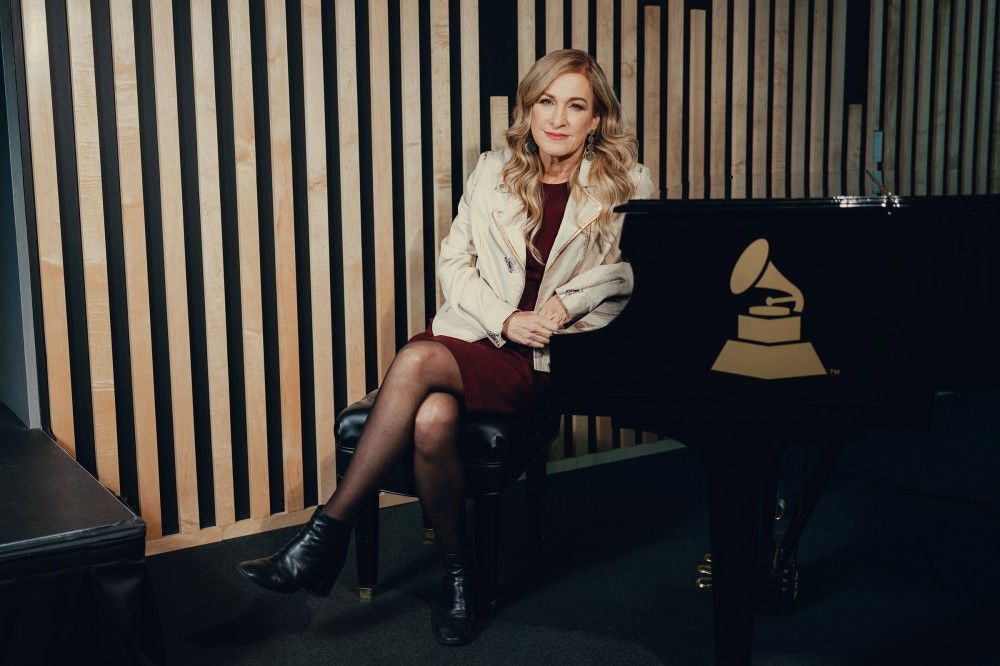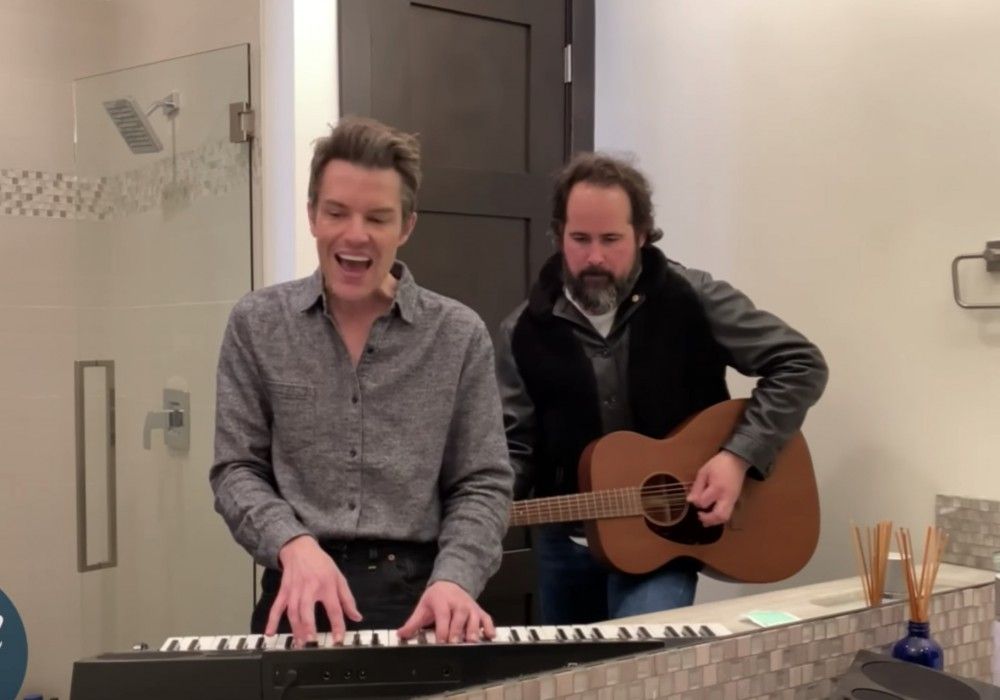
Grammys Chief Deborah Dugan Sues Recording Academy, Claiming Sexual Harassment
Former Recording Academy CEO claims she was sexually harassed by the general counsel to the Academy and put on administrative leave for raising numerous concerns about goings-on at the in a new filing with the Equal Employment Opportunity Commission. The 46-page complaint arrives just days before the 62nd .
The complaint – a charge of discrimination – is the latest in an increasingly heated dispute between Dugan and the Recording Academy. Dugan was placed on administrative leave last Thursday, 10 days before the Grammy Awards, over an alleged misconduct complaint.
Following the misconduct complaint last week, Variety reported that a former assistant in the Academy was preparing a lawsuit against Dugan over “an untenable situation in the executive offices that included verbal abuse and mistreatment.” (The assistant retained the firm of Patty Glaser, a high-profile attorney who previously represented Harvey Weinstein and Charlie Walk, the former Republic Records head who was accused of sexual misconduct by five former employees.)
Dugan, however, claims in Tuesday’s EEOC complaint that her ouster was based on a December 22nd, 2019 e-mail she sent to the Academy’s head of Human Resources that included sexual harassment complaints against Joel Katz, the Academy’s general counsel and a former member and chair of the Academy’s Board of Trustees. It also detailed “egregious conflicts of interest, improper self-dealing by Board members and voting irregularities with respect to nominations for Grammy Awards, all made possible by the ‘boys’ club’ mentality and approach to governance at the Academy.”
Sexual Harassment Allegations Against Joel Katz
Dugan claims that Katz sexually harassed her at a one-on-one dinner in May 2019 during a three-day Academy Board meeting in Laguna Niguel, California. Dugan claims he referred to her as “baby” and commented on her appearance multiple times throughout the dinner. Katz allegedly told Dugan he was “very, very rich” and said the two should spend time together. He allegedly told Dugan that “‘traveling to my many homes could be something nice for us to share.’”
“Indeed, in every one-on-one conversation Ms. Dugan had with Mr. Katz following the May, 18, 2019 dinner, he told her she was pretty and referred to her as ‘baby,’” the suit claims.
When reached by phone, a representative for Katz declined media requests. “Ms. Dugan’s allegations of harassment and her description of a dinner at the steakhouse in the Ritz Carlton, Laguna Niguel are false and Mr. Katz categorically and emphatically denies her version of that evening,” Howard Weitzman, Katz’s attorney, said in a statement to Rolling Stone. “This dinner meeting was two-and-half months before Ms. Dugan started her job. Mr. Katz believed they had a productive and professional meeting in a restaurant where a number of members of the Board of Trustees of the Academy, and others, were dining.
“Ms. Dugan’s claims are made, for the first time, seven months after this dinner took place,” the statement continued. “Mr. Katz will cooperate in any and all investigations or lawsuits by telling the absolute and whole truth. Hopefully Ms. Dugan will do the same.”
Sexual Assault Allegations Against Former Recording Academy CEO Neil Portnow
Perhaps the most shocking part of Dugan’s complaint involves an allegation of rape against former Grammys CEO Neil Portnow. Dugan claims that on the second day of a meeting of the Academy’s Board in May 2019 — before her tenure officially began — she was hurried into a conference room and told that a “foreign recording artist” and Academy member had accused Portnow of raping her after a show at Carnegie Hall. While the artist’s name isn’t included in the complaint, “A psychiatrist has confirmed that the sexual encounter between her and Mr. Portnow was likely not consensual,” according to the artist’s attorney as quoted in the complaint.
Dugan says the Board told her this as if they’d just learned it themselves, though in reality, she claims, members had previously known about the accusation and did not reveal it when she accepted the CEO position. Other members of the Board were reportedly also in the dark about the allegations against Portnow “despite the fact that they were supposed to be voting the following day on whether to give Mr. Portnow a bonus for his past work for the Academy,” according to the complaint. “Ms. Dugan quickly advised that the vote on a bonus could not go forward until the full Board was told of the rape allegation.”
Before the Board disclosed the alleged rape, Dugan claims, it “had asked Ms. Dugan to hire Mr. Portnow as a consultant for the hefty sum of $750,000.” Dugan refused. Portnow did not immediately reply to a request for comment.
Corruption in Grammy Voting
The complaint also alleges corruption in the Grammy nomination process, detailing a voting process in which the Academy’s Board of Trustees “ultimately controls, in large part, who is nominated for the Grammy Awards.” After the full 12,000-person Academy votes on potential nominations, separate committees for each category narrow down the nominations from the top-20 artists per award.
These “secret committees,” as they’re referred to in the complaint, are consistently made up of Board members who represent artists up for potential nominations, Dugan claims. The lawsuit refers to one instance in which an unnamed artist ranked near the bottom of potential nominees for Song of the Year allegedly sat in on the category’s nominating committee along with a Board member who represents them. Despite the artist’s low rank, the artist earned the nomination, beating out superstars like Ed Sheeran and Ariana Grande.
Artists up for nomination for Best Jazz Vocals took part in the process for their own category as well, the complaint further alleges. The board is allowed to nominate artists who failed to make the final 20 selections, the suit said, which led to 30 artists getting added to the possible nomination list despite a lack of votes from Academy voters.
Exorbitant Spending and Conflicts of Interest
Further, the suit details the Academy’s alleged improper spending and conflicts of interest. According to Dugan, one of the most glaring examples of the “boy’s club” at the Academy was its “willingness to acquiesce to the payment of exorbitant legal fees to male partners of large law firms who are extremely conflicted with respect to their work for the Academy.” To that end, the suit claims that the Recording Academy retained Katz for $250,000 a year, plus reimbursements for travel and other expenses “that were incurred without any prior authorization.”
Along with Katz’s individual retainer, Dugan’s complaint alleges that the Recording Academy has shelled out $15 million for legal work to his firm, Greenberg Trauig. Other lawyers and big law firms have also received millions, including Proskauer Rose and its partner, Chuck Ortner. During her first week on the job, Dugan said was asked to approve a $250,000 retainer for Ortner as a consultant.
The complaint goes on to allege that these exorbitant fees feed larger conflicts of interest, as Katz and Ortner also represent individual Recording Academy Board members, recording artists and other entities and individuals in the music industry with various interests in the decisions of the Recording Academy. “As a result, Mr. Katz and Mr. Ortner are in unique and conflicted positions to curry unwarranted favor from the Board (in exchange for personal legal services),” the suit reads. “They also are in unique and conflicted positions to influence Academy decision making (including award nominations) to favor their clients outside of the Academy.”
Per the complaint, when Dugan set about to cut down on these expenditures by hiring an in-house attorney, she was promptly rebuffed. Instead, the suit reads, “the Academy decided to increase the amount of money” going to Katz and Ortner. Ortner did not immediately reply to a request for comment.
In a statement, Dugan’s lawyers, Douglas H. Wigdor and Michael J. Willemin, said: “The complaint that we filed today against the National Academy of Recording Arts and Sciences (the Grammys) highlights tactics reminiscent of those deployed by individuals defending Harvey Weinstein. As we allege, the attempt by the Recording Academy to impugn the character of Deborah Dugan is a transparent effort to shift the focus away from its own unlawful activity. This blatant form of retaliation in corporate America is all too common, even post #MeToo, and we will utilize all lawful means necessary to ensure that those responsible are held accountable for their actions.”
“It is curious that Ms. Dugan never raised these grave allegations until a week after legal claims were made against her personally by a female employee who alleged Ms. Dugan had created a ‘toxic and intolerable’ work environment and engaged in ‘abusive and bullying conduct,’” a rep for the Academy replied in a statement. “When Ms. Dugan did raise her ‘concerns’ to HR, she specifically instructed HR ‘not to take any action’ in response.
“Nonetheless, we immediately launched independent investigations to review both Ms. Dugan’s potential misconduct and her subsequent allegations. Both of these investigations remain ongoing. Ms. Dugan was placed on administrative leave only after offering to step down and demanding $22 million from the Academy, which is a not-for-profit organization. Our loyalty will always be to the 21,000 members of the recording industry. We regret that Music’s Biggest Night is being stolen from them by Ms. Dugan’s actions and we are working to resolve the matter as quickly as possible.”
Immediately following the Academy’s statement, Wigdor and Willemin released a second statement refuting the Academy’s assertions. “As the charge filed today clearly alleges, the assertion that Ms. Dugan did not raise concerns prior to the accusations manufactured against her is completely false,” the attorneys said in a statement. “Ms. Dugan repeatedly raised concerns throughout her entire tenure at the Academy, and even gave large presentations focused on diversity and inclusion at Board meetings. In addition, it is not just Ms. Dugan who has raised concerns. As alleged in the charge, artists, other board members and employees have all raised virtually all of the concerns raised by Ms. Dugan. As alleged, the Academy has lost its way and abandoned the recording industry, instead focusing on self-dealing and turning blind eye to the ‘boys’ club’ environment, obvious improprieties and conflicts of interest.
“It was never Ms. Dugan’s intention to turn this into a public fight precisely because of her love for music and the members of the recording industry,” they added. “Unfortunately, staying silent was made impossible by the Board’s repeated leaks and disclosures of false and misleading information to the press. Finally, as alleged in the charge, on the morning of the day she was put on leave, the Academy offered Ms. Dugan millions of dollars to drop all of this and leave the Academy. The Board Chair demanded an answer within the hour. When Ms. Dugan refused to accept and walk away, she was put on leave. The Academy claimed that Ms. Dugan was put on leave based on accusations made against her over a month prior that the Board knows very well are meritless. That is not a credible story.”
Deborah Dugan’s EEOC Complaint Against the Recording Academy



